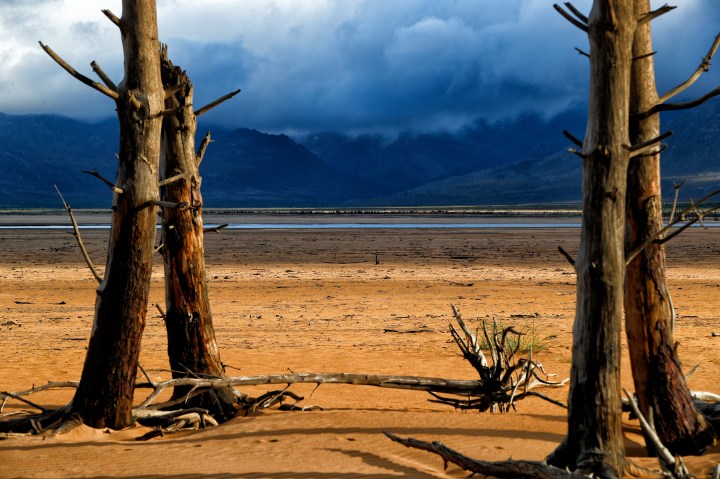BUSINESS MAVERICK
The heavens have opened, but Western Cape agriculture still needs more rain

While memories of Day Zero warnings in late 2017 and early 2018 might be fading in Cape Town residents’ minds, the effects of the severe water shortages are still felt in some farming communities — and agricultural production has not fully recovered from the damage of the 2017 drought.
The slow agricultural recovery in Western Cape farming has been evident in a poor harvest in wine grapes and horticultural products in 2018 and 2019. This occurred despite the recent improvement in rainfall. The province will have to receive average or above-average rainfall for a few more seasons for orchards to bounce back to pre-2017 levels.
The recent rainfall across the Western Cape set a good basis for such potential improvement. In the week of 22 July 2019, the provincial dam levels averaged 50%, which is roughly in line with the corresponding week last year. Given that the rains continued for the better part of last week, I suspect this week’s dam levels data update will show further improvement.
This would be a welcome development. That said, I recognise that some areas in the province received much higher rainfall than others, and dam levels vary across regions.
The rainfall will not only benefit the horticulture fields; winter grains and oilseeds will also benefit from improved moisture. The Western Cape accounts for 60% of South Africa’s winter wheat plantings, which means a potential improvement in the province’s winter crop could have wider positive spillover for the country’s wheat fortunes.
Moreover, the Western Cape has lifted its wheat plantings by 2% from the area planted in 2018. This is a fairly small improvement and suggests that farmers remain cautious of erratic weather conditions. The province is also a major producer of barley, canola and oats, which all stand to benefit from more sustained improvement in weather conditions. Encouragingly, feedback from farmers following the recent rainfall in the province has been positive, with winter crops reportedly in good shape.
There is, nonetheless, a need for more rainfall over the coming months to sustain the winter crops in good growing condition, which could then lead to higher yields. To this end, there is still some level of uncertainty. On 28 June 2019, the South African Weather Service cautioned of a high likelihood of dryness between July and September 2019. Seeing that July’s rain proved the agency’s estimates wrong, we start the month of August this week with the hope of a similar scenario.
The winter crops will need moisture at least until the end of September, which is when all crops will have matured. Also, winter crops in the Western Cape are generally rain-fed, hence the need for consistent rainfall. The horticulture fields need moisture throughout the year, with crucial months for next season’s harvest size being August and September, specifically for wine grapes.
The rainfall over the Western Cape and thereafter agricultural activities will not only be beneficial for farmers and agribusinesses in the province, but will also have positive spin-offs for the agricultural labour market and broader agricultural economy.
Over the past five years, the Western Cape has consistently been the leading employer in primary agriculture. The province accounted for 23% of the 829,000 jobs over this period. From an agricultural economy perspective, this makes the Western Cape the second biggest contributor after KwaZulu-Natal.
But more importantly, developments in the Western Cape serve as an important reminder of the urgency of thinking about strategies to shield farming activity in a world where we will increasingly have to contend with the unpredictable effects of climate change. BM
Wandile Sihlobo is chief economist of the Agricultural Business Chamber of South Africa (Agbiz).




















 Become an Insider
Become an Insider